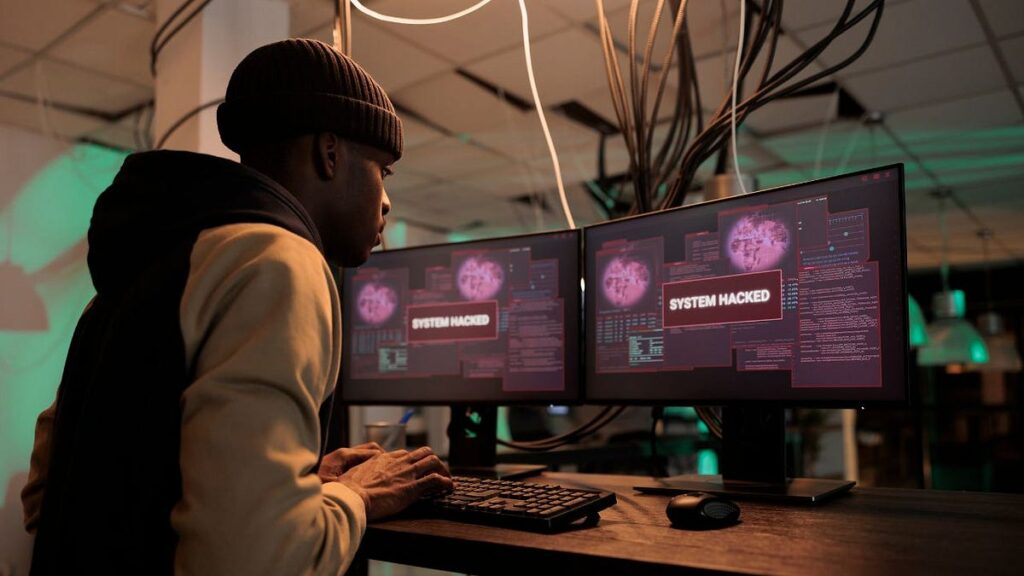Universities hold large amounts of data and a digital revolution is occurring. These institutions store a wealth of sensitive information, from research results to financial information to intellectual property, which are prime targets for cybercriminals. However, increased reliance on technology comes at the cost of increased vulnerability to cyber-attacks.
There are several reasons why universities are attractive targets for cybercriminals.
- Large amounts of sensitive data: Universities store vast amounts of personal information such as students' names, addresses, ID numbers, and financial data.
- Cutting edge research: Universities are often at the forefront of innovative research, and their intellectual property can be extremely valuable.
- Complex IT infrastructure: Universities rely on complex IT systems to manage everything from online learning platforms to administrative functions. These systems can be vulnerable to attacks if not properly secured.
- Lack of awareness: Many students, faculty, and staff may not be aware of the latest cyber threats or how to protect themselves online.
- In 2021, the National Universities of Singapore (NUS) Association fell victim to a cyberattack that resulted in the personal data of 1,355 members being stolen. Stolen data includes full NRIC number (Singapore National Identification Number), name, date of birth, nationality, gender, marital status, email address, phone number, work and home address, vehicle registration number, It reportedly included details of university degrees and even food. and drink order history. This incident highlighted the vast amount of confidential information held by universities and the potential impact of cyber threats.
- In February 2024, a cyberattack targeted the Faculty of Education at the University of Hong Kong (HKU), raising concerns about a potential data breach. The attack may have compromised the personal information of approximately 7,400 people, including students, academic visitors, and research program applicants. The leaked data could include students' names, academic progress, research proposal summaries, and internal documents dating back to 2012. This incident highlighted the vulnerability of not only student records but also the many forms of data held by universities.
- In 2021, the University of Indonesia (UI) reported that email addresses belonging to the university community were suspected to have been leaked on the website of the Directorate General of Research, Community Services and Innovation (DPM UI). Furthermore, in 2020, a data breach that affected user information allegedly occurred on the website of the Faculty of Computer Science (Fasilkom UI).
A successful cyberattack against a university can have devastating effects, including:
- Data breach: Exposure of student records can lead to identity theft and financial fraud. Leakage of research can undermine academic integrity and give competitors an unfair advantage.
- Business interruption: Cyber threats can cripple university systems, disrupting online learning, email communications, and other critical functions.
- Economic loss: Universities can incur significant costs in recovering from cyberattacks, including repairing damaged systems, hiring cybersecurity experts, and complying with data breach notification laws.
- Harmful rumor: Cyberattacks can undermine public confidence in a university's ability to protect sensitive data. This can make it difficult to attract students, faculty, and research funding.
To combat the growing threat of cyberattacks, higher education institutions must take a multifaceted approach to cybersecurity, including:
- Risk assessment and vulnerability management: Regularly check your computer systems and networks for holes that hackers can exploit. Solve these issues and stay up to date on emerging cyber threats.
- Cyber security awareness training: Teach instructors, staff, and students how to stay safe online. This includes using strong passwords, being careful with email, and recognizing fake messages. Make everyone on campus aware of the importance of cybersecurity.
- endpoint security solution: Protect University computers and devices (endpoints) using cybersecurity solutions such as antivirus, firewalls, email and website protection, or other tools. If used remotely, make sure your device is encrypted and securely accessible.
- data protection: Encrypt sensitive information such as student records in case someone steals it. Restrict access to this data to only those who need it for their job.
- Incident response plan: Make a plan for what to do if a cyber attack occurs. This plan should include reporting the attack, figuring out what happened, and getting everything back on track quickly.
Cyberattacks are a serious threat to universities. As these institutions increasingly utilize digital tools for teaching and research, it's important to prioritize security. Helping everyone understand how to stay safe online, employing robust security technology, and collaborating with others to stay ahead of cyber threats are essential for universities to protect themselves. It's a step. This is a collective effort to protect education from cyber threats. By taking proactive steps to strengthen their cybersecurity posture, universities can protect valuable data, keep systems running smoothly, and maintain a reputation for excellence.
Written by: Fanny Faggianti (Performance Marketing)


